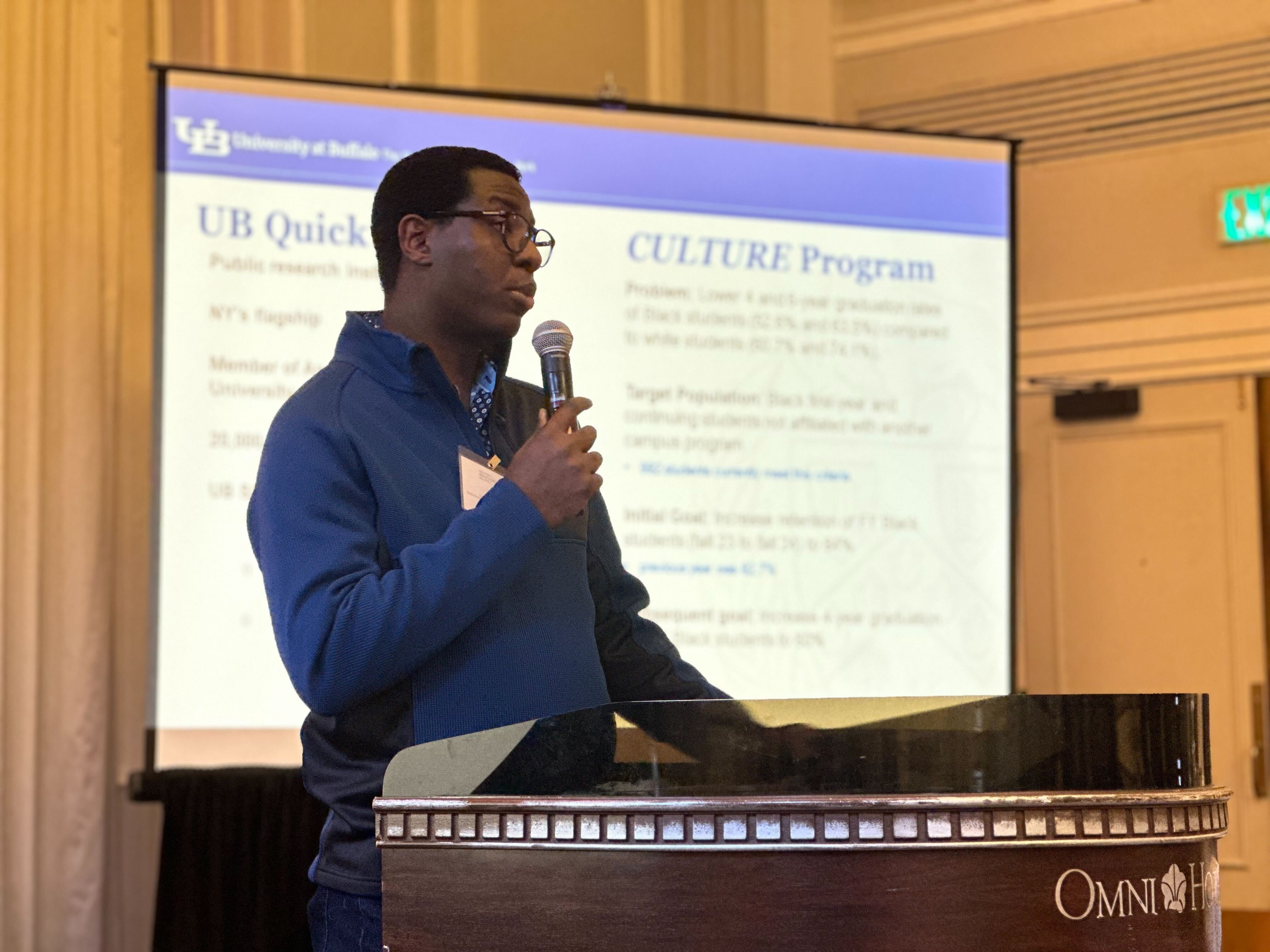In the world of higher education, we've grown increasingly defensive, and for good reason. The growing public skepticism surrounding the value of higher education has made us feel vulnerable. The natural instinct when threatened is to defend what we hold dear. But what if, instead of defending our past, we understood that the landscape has evolved, and society's needs have shifted?
Let's take a closer look at the prevailing trends and voices in higher education today:
Critics are openly questioning why we seem to ignore the rising skepticism about higher education. University leaders respond with data on outcomes and success rates, arguing that we're doing better than ever before (and we are doing better than most people realize) in serving and graduating students. Meanwhile, students and alumni are vocal about student debt burdens and the cost of education compared to the past. College leaders counter by highlighting the expense of providing a quality education and the potential devaluation of degrees through widespread loan forgiveness. Additionally, disruptors in the education sector have been vocal in asserting that college isn't worth the investment, a message that has eroded public trust – even as some of these disruptive models have turned out to be little more than marketing strategies designed to fleece students and taxpayers.
Amid this cacophony, what if multiple perspectives are correct? What if college is indeed better than ever, the cost is justified, and there are growing opportunities for individuals to find the right fit for their educational goals? But what if, also, people are losing faith in the American Dream itself, requiring higher ed to respond and adapt to public skepticism?
Society has changed. Income inequality is soaring, young people are disenchanted about the future, polarization is at its peak, and the internet fosters echo chambers. The American Dream is slipping away for many, and this skepticism poses a grave threat to the institutions we long valued, including universities, and to our democracy itself. In a future driven by head-spinning technological change and AI, we need higher education to listen to the skepticism of people who fear being left behind and adapt by ensuring that what we teach and the programs we offer will equip people to navigate the knowledge economy and thrive in a rapidly shifting workforce.
The truth is, higher education is the talent activator, the thing that makes the American Dream possible for people who are poor, first-generation, or at the margins. We empower individuals to transition from physical to mental labor and fully participate in the knowledge economy.
But rather than continuing to defend our past, we must acknowledge that the issue at hand transcends our institutions. It's about the rapidly evolving needs of society. We must embrace change, collaborate, and leverage the collective wisdom of higher education to identify how we can adapt. We are the key to reigniting the American Dream for those who need it most.
So, let’s shift our focus away from defensiveness and towards innovation. The future of higher education lies in recognizing that our purpose is not static. It's about adapting to meet the changing needs of society and ensuring that education remains the catalyst for achieving one's full potential. The American Dream may be evolving, but we can help make it a reality for all, provided we are willing to change and grow along with it.
November 21, 2023
 Network Highlights
Network Highlights
30 UIA campus leaders from 11 institutions met in Indianapolis earlier this month to share progress on the UIA’s Student-Centered Redesign Project, which began in 2020 and is supporting campus-specific projects focused on Black student success (in partnership with the Michael & Susan Dell Foundation). The group celebrated progress, shared successful approaches, and gathered insights for our forthcoming project playbook. Dr. Felecia Commodore and Dr. Leonard Taylor shared their expertise by leading workshops and discussion.


What we’re learning from this month at the UIA:
- A New Transfer Pathway From Prison to the CSU (article)
- Unlocking Hidden Potential with Adam Grant | Revisionist History | Malcolm Gladwell (podcast)
- The False Binary of Higher Education: Liberal Education and Career Training Aren’t Mutually Exclusive | The Atlantic (article)
- Analysis: Flipping the Script on Teaching Neurodivergent Students — and the Implications for All Learners (article)
- Academic Success Tip: Using TikTok to Promote Engagement (article)
- The Hidden Financial Aid Hurdle Derailing College Students (article)
- The Psychology Of Innovation: From Purpose To Gratitude (A Thanksgiving-themed throwback article)
Stuff We Love
- Fun gift for a wine drinker in your life
- This stuff cleans those weird places in your car
- Clean your floor while you walk around on a call
- Neat soap and sponge holder for your sink
- Core and cut pineapple easily at home
- The perfect gift for the adventurer in your life
- December 7 - 9, 2023: NASPA Conference, Washington, D.C.
- December 10 - 12, 2023: Complete College America Annual Convening, Las Vegas, NV
- January 17 - 19, 2024: AAC&U Annual Meeting, Washington, D.C.
- January 18 - 20, 2024: NASPA Strategies Conference, San Francisco, CA
- January 27-29, 2024: NASPA AVP Symposium, Atlanta, GA (Deadline to Register: January 3, 2024)
- January 30-February 1, 2024: NASPA Symposium on Military-Connected Students, Louisville, KY (Deadline to Register: January 8, 2024)
- February 9, 2024: AAC&U Forum on Digital Innovation, virtual (Deadline to Register: January 31, 2024)
- February 18 - 21, 2024: NRC Annual Conference on The First Year Experience, Seattle, WA (Registration Deadline: January 18, 2024)
- March 4-7, 2024: SXSW EDU Conference & Festival (Registration Open)
- March 4-5, 2024: ACE Presidents and Chancellors Summit
- March 9-13, 2024: NASPA Annual Conference, Seattle, WA (Registration Open)
- March 21-23, 2024: AAC&U Conference, Philadelphia, PA (Early Bird Deadline: February 24, 2024)
“Ask for help. It’s too big, complex, and difficult to do by yourself, and people find it endearing. Some of the biggest problems cut across disciplines. And that’s one way to build partnership.”

